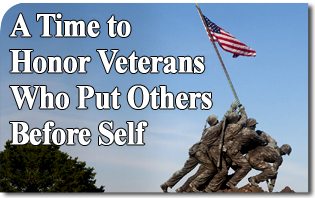 This never-give-up attitude was on full display with the opening evening’s Wounded Warriors Experience. Staff Sergeant Spencer Milo spoke very candidly of the traumatic brain injury he suffered in Iraq in 2008, when a young child was used as a suicide bomber. He was only 23 years old when doctors misdiagnosed him with a brain tumor and subsequently gave him six months to live. A second opinion gave him a new lease on life. He chose to use the second chance to return to the field of battle in 2010 only to be re-injured by an IED (improvised explosive device) while dragging a comrade to safety.
This never-give-up attitude was on full display with the opening evening’s Wounded Warriors Experience. Staff Sergeant Spencer Milo spoke very candidly of the traumatic brain injury he suffered in Iraq in 2008, when a young child was used as a suicide bomber. He was only 23 years old when doctors misdiagnosed him with a brain tumor and subsequently gave him six months to live. A second opinion gave him a new lease on life. He chose to use the second chance to return to the field of battle in 2010 only to be re-injured by an IED (improvised explosive device) while dragging a comrade to safety.
Rob Jones, a tenacious United States Marine, lost both of his legs from an IED blast while serving in Afghanistan. He has not allowed this to define him, however. Two years later he went on to become a Paralympian rower. He drew applause from the audience when he explained his next goal. He is currently training for a
Month of Marathons that entails 31 runs in 31 days in 31 different cities. His motivation? To raise funds for other injured veterans like him.
Sgt. Jeremiah Workman was also on the panel. He described how war is ugly and people often die. He found this out firsthand during the second battle of Fallujah. After kicking in a door he discovered thirty crazed combatants on the other side. He spent the next three hours inside a house fighting to save the lives of his fellow Marines. This required multiple trips into a gun fight that seemed to have no end. “When you are faced with such drama,” he said, you simply, “dust yourself off a bit and get back into the fight.” His never-give-up attitude on the battlefield was matched by his unwillingness to let the internal scars of war stand in his way to go on living. Dealing with PTSD (Post Traumatic Stress Disorder), he said, amounts to realizing that the scars of war are “a normal reaction to something that is not normal.”
One could say that the theme of this year’s Veterans Conference was about this type of resiliency, which is one aspect of a true leader. During his keynote address Gen. Peter Pace, former Chairman of the Joint Chiefs of Staff, spoke on the issue of leadership. When choosing a branch of the service to enter, he told the audience that largely consisted of cadets of service academies from across the nation, “you must look at those who lead and ask yourself, do I want to be like them.”
Such men are not rare in our country. James McEachin earned the Silver Star for valor in the Korean War. Although he later became a film actor, he explained how the proudest title one can aspire to is not that of a movie star or athlete but rather, “veteran.” Those, he explained, that have “the willingness to give up everything [for you].” Men who shed blood “because they did not want to let their buddies down.” He experienced this firsthand when he lay severely injured on the battlefield, with what would have been life ending injuries. A blond-haired soldier appeared out of nowhere and came to his assistance. He gently patched up Mr. McEachin’s wounds then carried him out of danger through a hail of bullets. The two of them were the only ones to survive this battle, yet he never found out the identity of this mysterious soldier. He remembered telling the soldier, “I never got your name.” Choking back tears he described how the soldier simply responded, “I never got yours either. Let’s keep it that way.”
Men like these were not only able to survive such ordeals but, with the help of fellow warriors, push forward… because they were not alone. This is a valuable lesson for all Americans. We are blessed to be a part of a nation of heroes. Not only those who fight on foreign battlefields but those willing to sacrifice themselves at home during times of tragedy like 9-11. In times of hardship, therefore, we should expect a helping hand from someone when we think there is no solution. While they might have names like Jeremiah Workman, Rob Jones or Spencer Milo they might also be a nameless person who prefers to be anonymous simply because they desire to put others above self.

